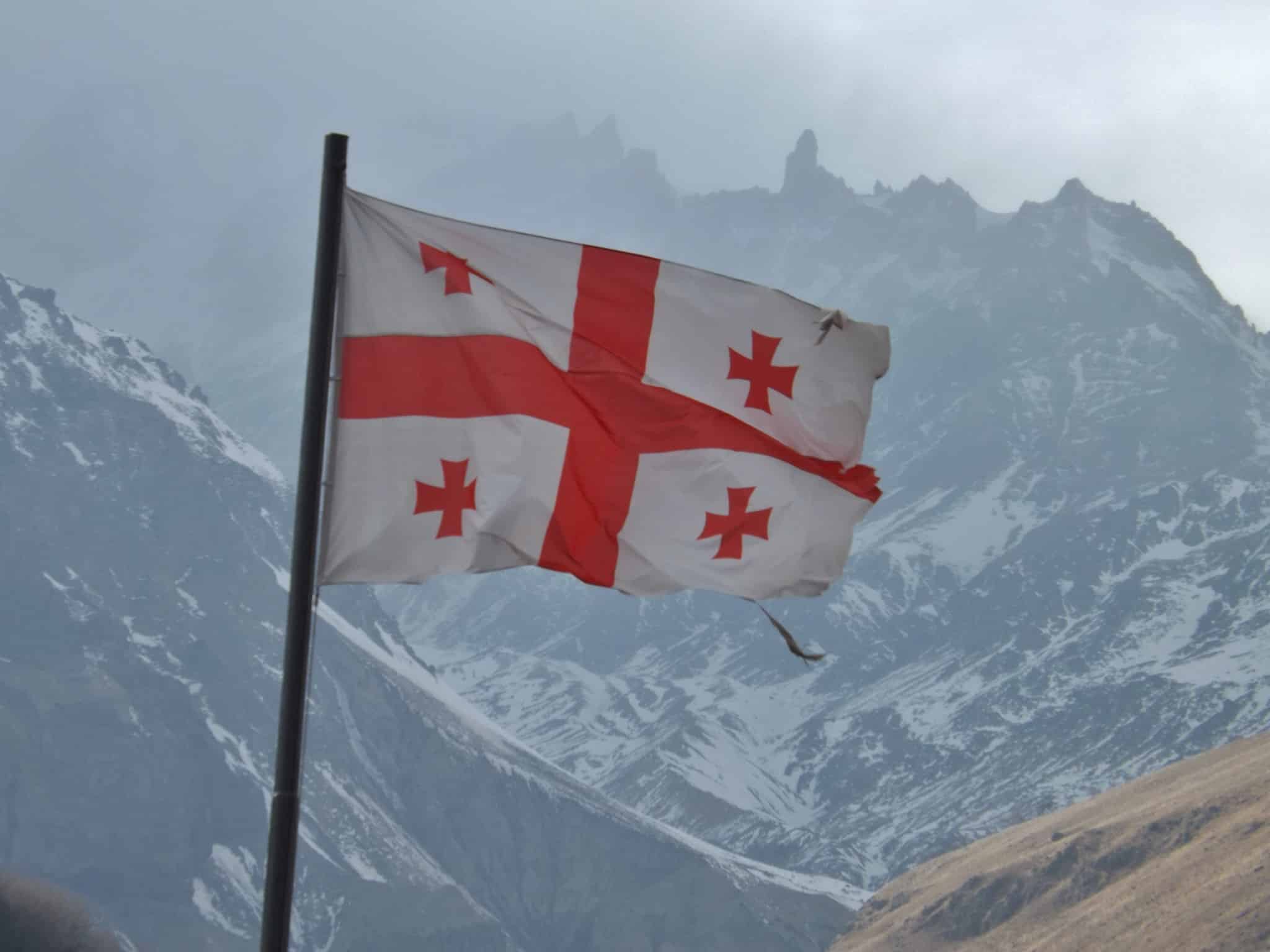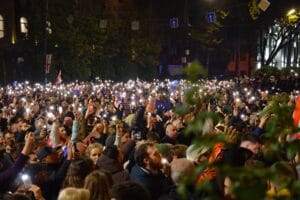Photo: The Georgian Flag – Flickr
Georgia’s next parliamentary elections are on the 26th of October. This will take place against the backdrop of some controversial laws that have recently been adopted in Georgia. On the 17th of September, for example, the Georgian parliament passed a law that officially bans any form of LGBTQ+ representation. Additionally, earlier this year, a law was passed which labels organizations that receive money from abroad as so called foreign agents. These laws were devised and introduced by the ruling Georgian Dream party, which has a majority in parliament and is beginning to show increasingly autocratic traits.
Georgia has officially been a candidate for EU membership since 2023, but Georgian Dream has been taking more and more distance from the EU ever since. In addition to the aforementioned laws they have also sworn to ban all opposition parties as soon as they get enough seats in parliament to do so. This plan has invoked a lot of criticism from the EU, which sees this as yet another anti-democratic measure of Georgian Dream. On top of this, the party has become increasingly pro-Russian. It has, for example, refused to impose sanctions on Russia after the invasion of Ukraine. According to them, this will only pull Georgia into a war with Russia. With this idea, they are now even trying to win the elections, namely by claiming that they stand for peace, while the opposition wants to plunge the country into war. This may sound exaggerated, but because of Georgia’s history this frame could be quite effective. Georgian Dream is trying to use fear to stay in power.
A difficult history
In 2008, a brief war between Georgia and Russia took place, where Georgia was overrun militarily by its much more powerful neighbor. This war started with tensions that arose between the Georgian government and the two separatist regions of South Ossetia and Abkhazia. When Georgia attacked these regions after many provocations, a large Russian army was waiting to crush the Georgian army. This war was very traumatic for Georgia and still affects the region up to this day. In fact, Russia still has a military presence in South Ossetia and Abkhazia and even keeps pushing the border further into Georgian territory.
Georgian Dream’s behavior should be understood in this context. In 2012, this party came to power and was hugely opposed the pro-European United National Movement that was in power during the war. According to Georgian Dream, The United National Movement provoked the war in 2008 and now wants to start a war with Russia again. This is quite an effective frame, but also takes all responsibility away from Russia. The strategy employed here is clear. Georgian Dream is trying to appease Russia at all costs to avoid another conflict between the two countries. The war in Ukraine has only made this a more difficult task and the party has taken increasingly desperate measures. However, this will not be effective. Russia has shown time and again that it has no respect for Georgia’s territorial integrity. Its invasion of Ukraine is already telling, but its continued presence in South Ossetia and Abkhazia says it all. Cooperation with Russia is not possible on equal terms. The only way to guarantee Georgia’s security and independence is to strengthen the democracy and join the EU. Georgian Dream is ruining every chance to do so, but if the opposition parties win the elections, there is still hope.
What is the opposition doing?
Georgia’s opposition consists of a huge number of small parties, which cannot all reach the 5% electoral threshold. For this reason, Georgia’s current president, Salome Zourabichvili, who is openly opposed to Georgian Dream, is trying to do all she can to bring the opposition together. In May, she presented a program which was supposed to unify the different opposition parties. This program stated, among other things, that laws detrimental to Georgia’s EU accession process will be repealed and that the judicial system will be reformed. With the help of this program, some opposition parties agreed to unite around the main opposition party, the United National Movement, but many other parties refused.
Zourabichvili next tried to bring two of the parties that refused to unify, For Georgia and Strong Georgia, together in a new coalition, but this unfortunately did not succeed. Both parties are now accusing each other of being responsible for the failed negotiations. For this reason, it remains unsure whether both parties will reach the electoral threshold. This is only good news for the Georgian Dream and United National Movement power blocs. Thus, the opposition remains divided. Still, there is hope. According to the most recent polls, a large number of parties will meet the 5% electoral threshold and Georgian Dream will not win a majority. This means that the current government cannot pursue its plans, such as banning the opposition, and multiple parties will be needed to form a new government. This increase in pluralism is a crucial development for democracy in Georgia.
A choice between fear and hope
So while Georgian Dream is looking fearfully at Moscow, the opposition looks hopefully at Brussels. The threat from Russia always remains high, and, especially after the invasion of Ukraine, it is clear that it has no respect for the territorial integrity of its neighbors. The strategy employed by Georgian Dream to appease Russia will therefore be ineffective. By distancing itself from the EU and democratic values, this party is only playing into Russia’s hands.
Georgian Dream wants everyone to believe that a choice between peace or war must be made on the 26th of October. This choice sounds very simple, but this so-called peace means nothing more than legitimizing and accepting the grip that Russia has had on Georgia for years. The opposition, on the contrary, wants to break this grip. The latter is still possible now, but if Georgian Dream wins, it might be too late when the next elections come in four years. We can only hope that the opposition will win a majority and can keep Russia out with democratic and rule-of-law measures.
Written by Guido Boven



